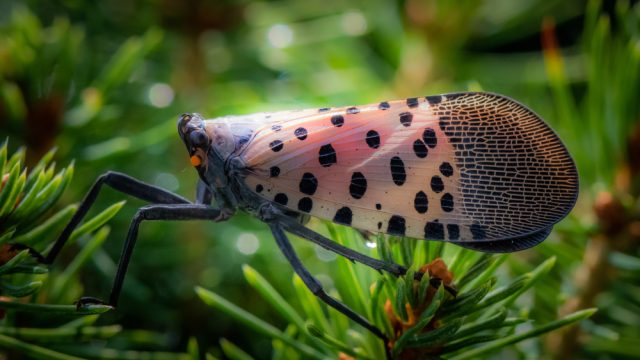If You See This Bug, You May Be Put Under Quarantine, Officials Warn
The invasive species has already been spotted across dozens of counties in the U.S.
Whether it's a cockroach in your kitchen or a spider on your mattress, certain bugs are just bad luck to spot. But besides your everyday pests, there are still other types of insect that you don't want around your property at all, including invasive species that can eventually lay ruin to local ecosystems. To slow their spread, some areas are instituting new rules in an effort to save local crops or agriculture from impending disaster. And now, officials warn that spotting one particular bug means you may be placed under quarantine. Read on to see which insect you don't want to see in your area.
READ THIS NEXT: If You See This Scary Bug in Your Home, Don't Kill It, Experts Warn.
New types of invasive species spreading across the U.S. have made headlines recently.
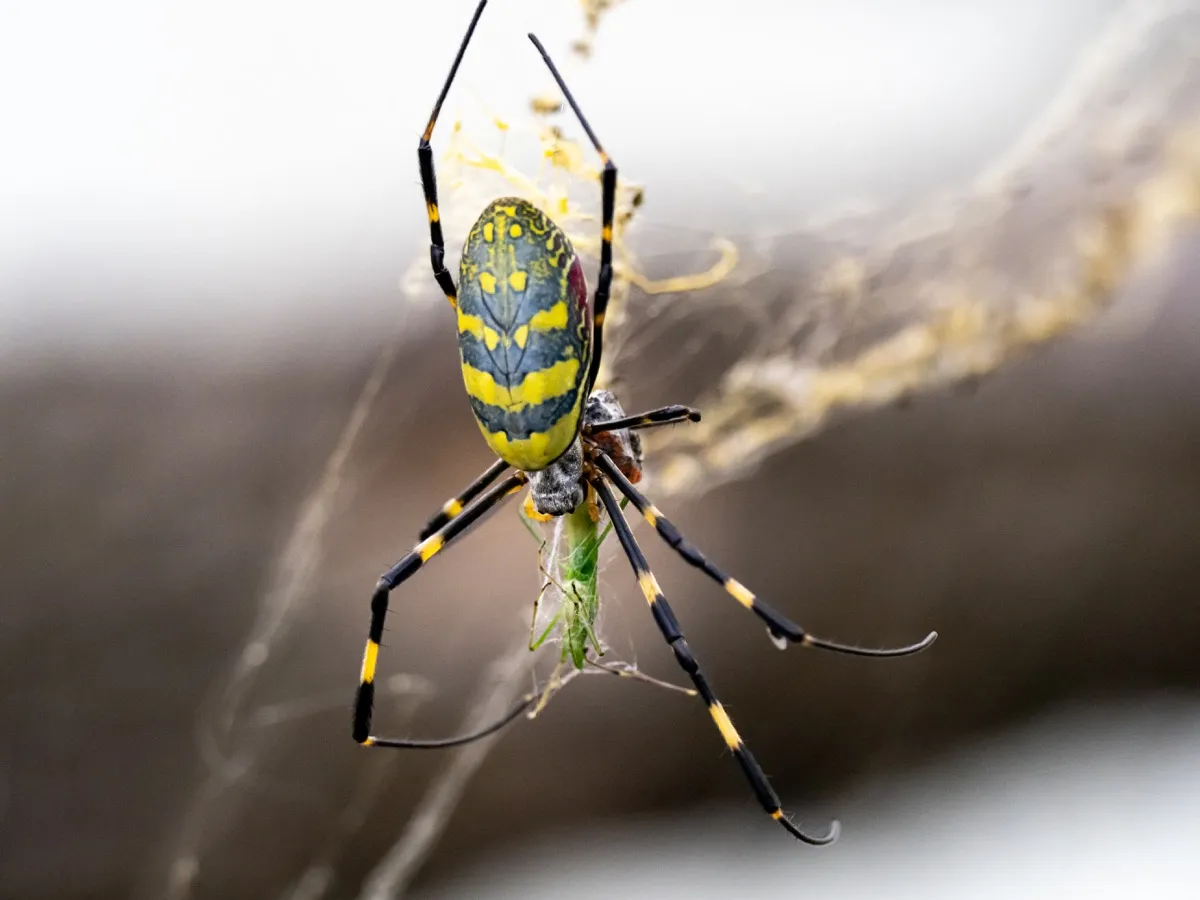
Invasive species are nothing new when it comes to ecology. But because of modern advances in technology and transportation, biological stowaways are now able to move around the world more quickly and efficiently as plants, animals, and microbes slip into shipping containers, planes, or even just moving boxes. For example, the Southeastern U.S. has recently seen palm-sized Joro spiders native to Japan spread across the region, often traveling to new areas on the wind. While the newly arrived arachnids don't have a dangerous bite or pose a threat to local plants, experts warned that the conditions were right for them to expand their range all along the Eastern Seaboard.
"[It has] no predators, it doesn't have anything that's controlling its population size in the new habitat, but it has perfect conditions to spread," Benjamin Frick, co-author of a recent study on the spiders and an undergraduate at Odum School of Ecology, University of Georgia, explained to local Atlanta CBS affiliate WGCL in March.
And recently, experts have warned that southern states such as Louisiana and Georgia have seen invasive hammerhead worms spreading further across the region. Besides feeding on other worms such as the beneficial nightcrawler, the hammerhead also poses a unique threat in that a toxin released by their skin can cause irritation or rashes if handled, the Shreveport Times reports. But now, another species has caught the attention of authorities for being a potentially devastating arrival.
Authorities in some states are trying to slow the spread of an invasive bug by issuing quarantines.
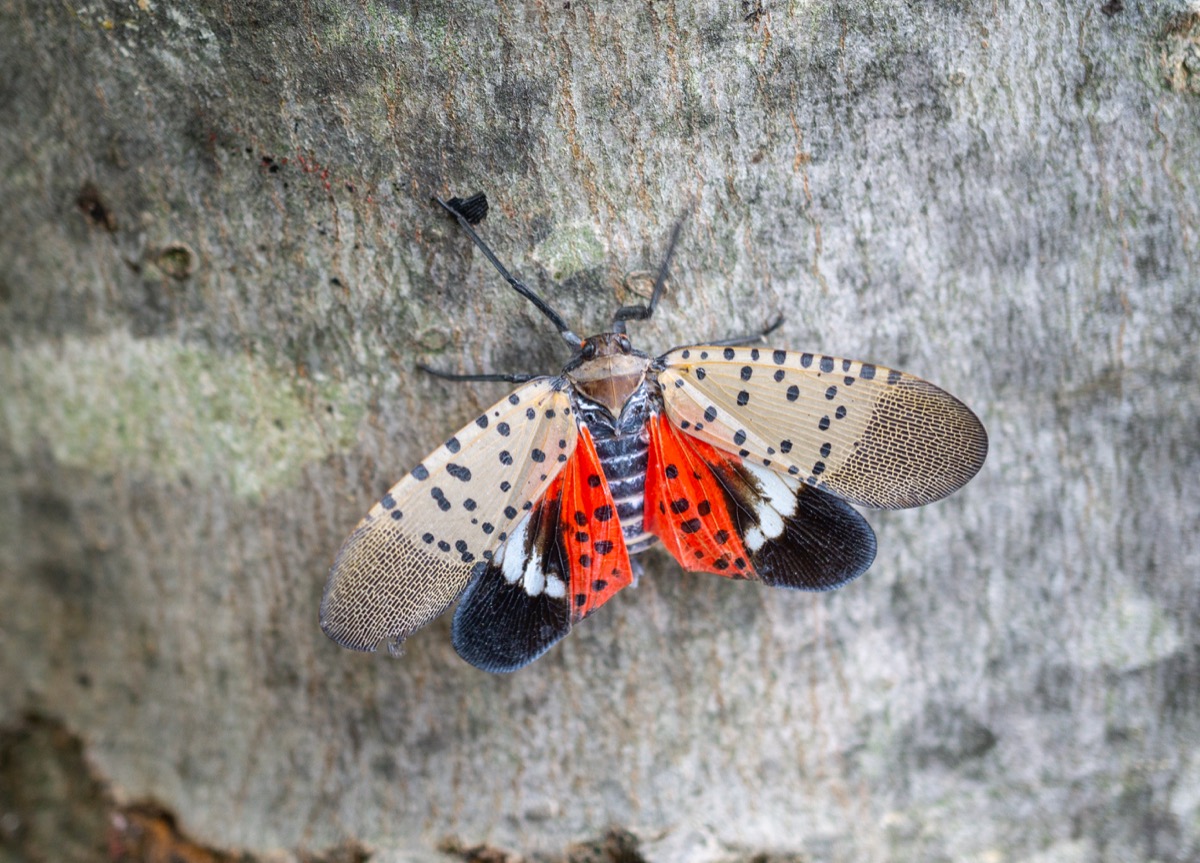
According to authorities in New Jersey, the invasive spotted lanternfly is now making its seasonal comeback as its egg sacks begin hatching and releasing new young, the Morristown Daily Record reports. Despite their brilliant color pattern, the bugs became infamous for swarming tress in New Jersey and surrounding states last summer after first being discovered in 2018, leading authorities to place more than a dozen counties under a special quarantine. Since then, the species has also been spotted in New York, Connecticut, Massachusetts, Pennsylvania, Maryland, Delaware, Virginia, West Virginia, North Carolina, Indiana, Ohio, Rhode Island, Vermont, and New Hampshire.
RELATED: For more up-to-date information, sign up for our daily newsletter.
Quarantines restrict the movement of certain items in the counties where they're in place.
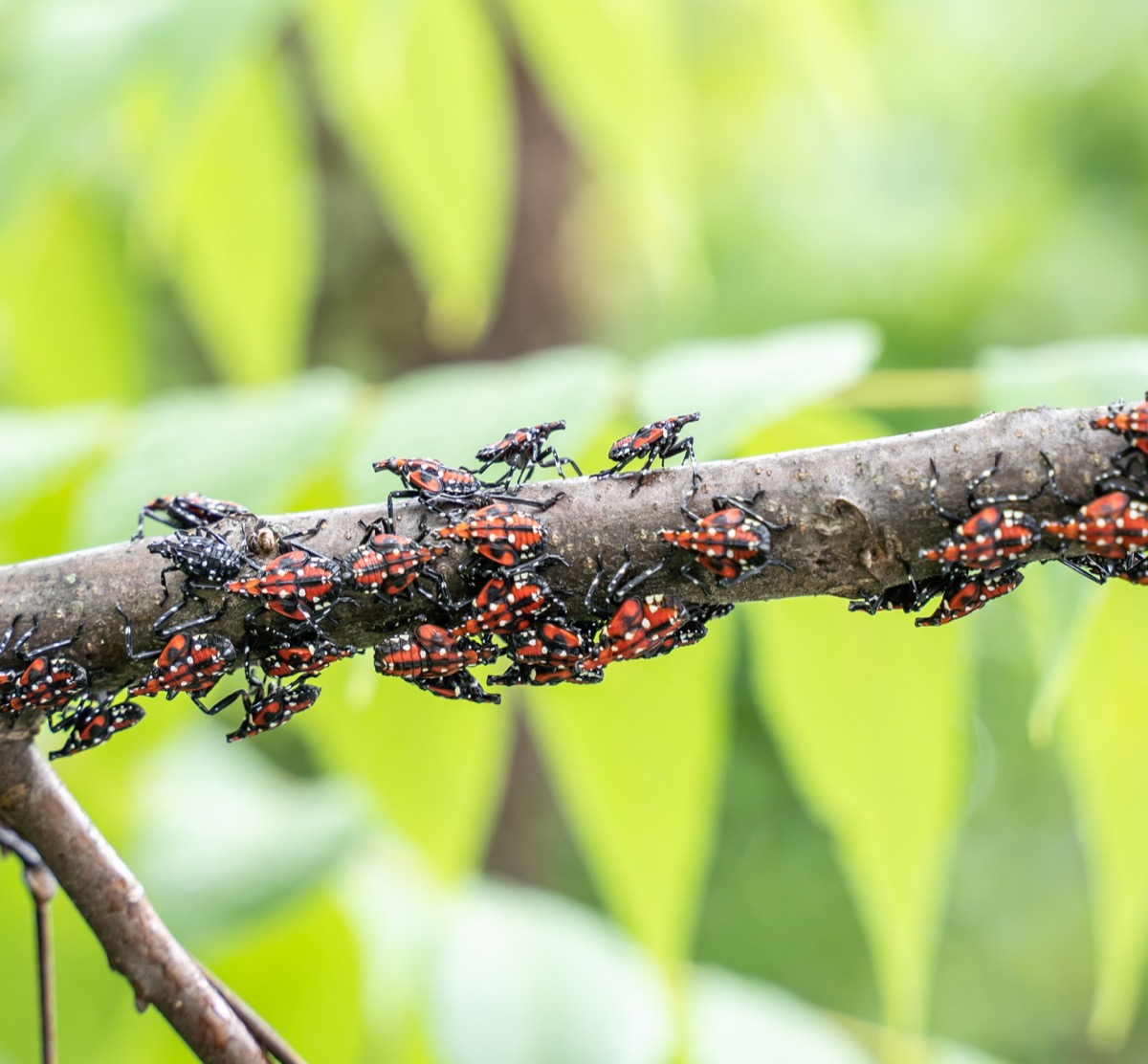
The special quarantines put in place by local authorities aim to slow the invasive bug's spread by limiting the movement of certain items. The rules stipulate that it's prohibited to transport a spotted lanternfly through landscaping or construction waste, firewood, grapevines, packing materials such as boxes or palates, vehicles including RVs, and tarps, according to The Philadelphia Inquirer.
Fortunately, experts say that the invasive bug poses no immediate threat to humans or other animals. But their spread could wreak agricultural havoc thanks to the spotted lanternfly's preferred fruit diet, including grapes.
"This will be detrimental to the grape and wine industry," Jennifer Phillips Russo, viticulture extension specialist and Lake Erie Regional Grape Program team leader, told The Post-Journal. "We've been dealing with it since 2017. Penn State has been doing research and it has slowly gained interest and the needed tools to begin to deal with this problem. But, there is already an established population in New York state in places like Long Island. It's slowly moving this way."
Here's what you should do if you see the invasive bug.
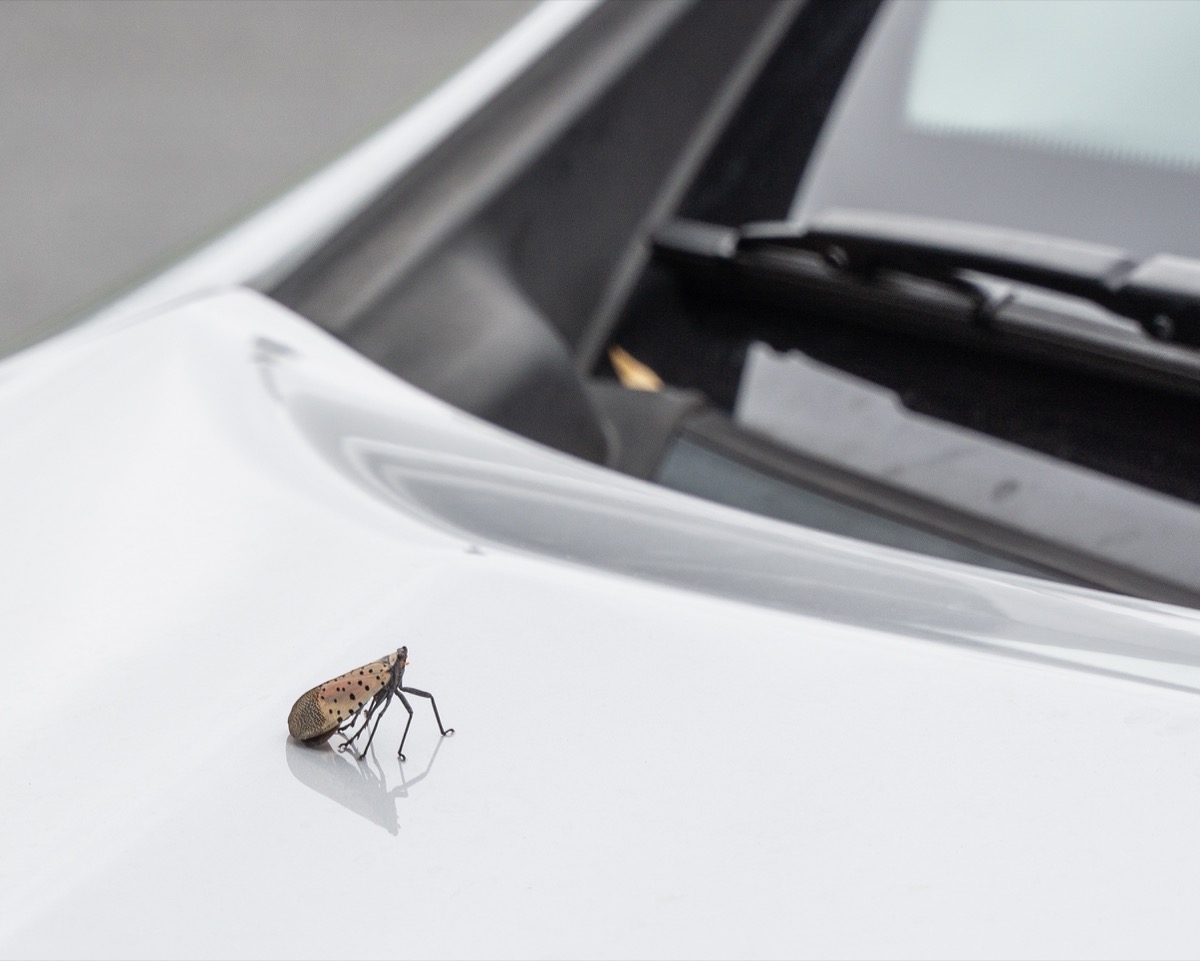
Because of the ecological threat it poses, officials ask residents and businesses to stay vigilant when traveling by checking their cars, trucks, and clothing for any stowaway spotted lanternflies or egg masses. Any that are discovered should be wiped off the surface they're attached to and crushed.
"We are targeting areas where severe infestations have been confirmed, and we also encourage residents to destroy the spotted lanternfly if possible when they see it," New Jersey Agriculture Secretary Douglas Fisher said last year, per the Morristown Daily Record. "It will take a combined effort to help keep this pest from spreading."
While some may argue the tactics seem cruel, experts point out that the continued spread of the bug could have devastating consequences. "Even though you may disagree with these measures, be advised that it remains within the discretion of any state to impose crippling load-by-load phytosanitary requirements on future deliveries," an advisory posted by the Rutgers Cooperative Extension on March 9 read. "Load-rejections that occurred last fall underscore the seriousness of the spotted lanternfly situation and the far-reaching impact it might have on your business and the New Jersey industry at large."
READ THIS NEXT: If You Smell This in Your Bedroom, You Might Have Bed Bugs.
